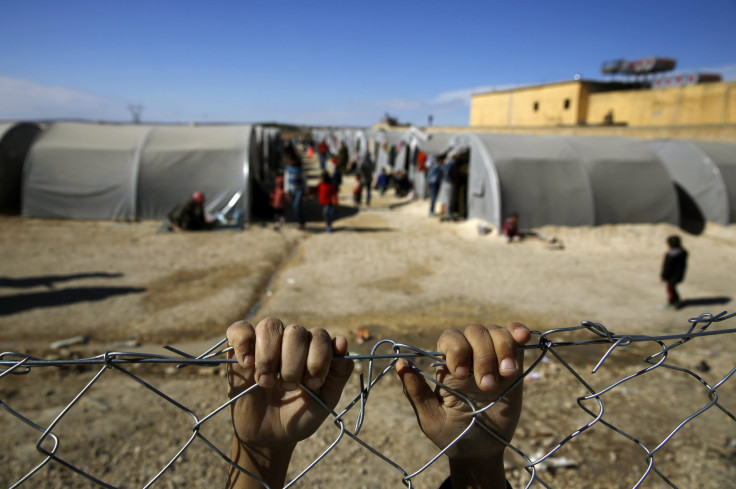Refugee Crisis: UN Members Reject Concrete Resettlement Target Ahead Of Key September Summit

United Nations member states have rejected a proposal that set a concrete target for resettlement of refugees in developed nations. Instead, the negotiators finalized what is being criticized as a “watered-down” outcome document that will be adopted at a U.N. summit later this year.
“Faced with the worst refugee crisis in 70 years, world leaders have failed to the bear the weight of responsibility,” Charlotte Phillips, advisor on refugee and migrants’ rights at Amnesty International, said in a statement released Wednesday. “The Refugee Summit was a historic opportunity to find a desperately-needed global solution to the refugee crisis. Instead, world leaders delayed any chance of a deal until 2018, procrastinating over crucial decisions even as refugees drown at sea and languish in camps with no hope for the future. But failure to agree a deal does not let governments off the hook.”
The original document, which the negotiators failed to agree upon, called for the resettlement of 10 percent of the world’s refugees to developed nations annually. The move would have been a significant step in reducing the burden on developing countries, which are currently sheltering a staggering 86 percent of the world’s refugees and migrants.
Turkey, with over 2.5 million refugees, is currently the largest host country. In terms of refugee to population ratio, Lebanon — with 1.2 million refugees and a population of 4.5 million — shelters the highest proportion of refugees.
“We intend to expand the number and range of legal pathways available for refugees to be admitted to, or resettled in, third countries. In addition to easing the plight of refugees, this has benefits for countries who host large refugee populations and for third countries who receive refugees,” the revised document meant for adoption in September, says, without setting a concrete resettlement target.
However, Karen AbuZayd — the U.N. secretary-general’s special adviser for the summit — told Agence France-Presse that she was “very pleased by the agreement.”
“The issue of resettlement targets can be dealt with at the pledging summit, where some states might make big offers,” AbuZayd said.
The ongoing refugee crisis, fuelled by war and persecution in the Middle East and sub-Saharan Africa, is the worst the world has witnessed since World War II. In 2015, an “unprecedented” 65 million people were displaced from their homes — an increase of over 5 million over the 2014 figure. The lack of legal routes to the developed world has forced most of these refugees to seek shelter in low- and middle-income countries located close to the strife-torn areas. This, in turn, has fomented resentment against developed nations in the handful of countries bearing the brunt of the crisis.
“You can look at this from a glass-half-full or glass-half-empty perspective — and for us it’s a glass-half-full,” Volker Türk, the U.N. refugee agency’s assistant high commissioner for protection, told the Guardian. “In a situation where you have elections that are now won by demonising migrants and in a climate where major host countries such as Lebanon, Pakistan, Kenya and others are feeling that they don’t get the support that they need, in an environment where we have such polarised discussion at a domestic and also a regional and global level — I think it’s a minor miracle what we have seen come out as a draft for adoption.”
© Copyright IBTimes 2024. All rights reserved.












